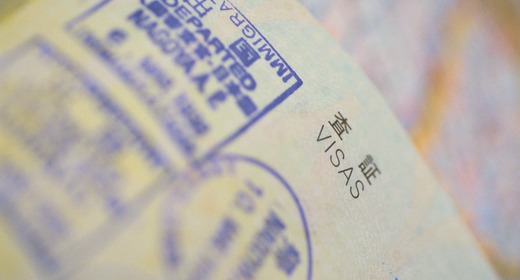- Home
- Learn
- Travel Tips
- Preparing to Travel
- Chubb-Travel-Tips
Travel tips for the novice or pro
The key to staying safe overseas is often in the preparation – if you follow these safety tips and prepare ahead of your trip, then a happy trip should come naturally.
1. Check out the Ministry of Foreign Affairs website
Know the local situation and requirement for visiting a specific country. Visit the Ministry of Foreign Affairs website for travel advisory and visa requirements prior to your trip.
You can also register yourselves with the Ministry of Foreign Affair for your trip. This will allow them to contact you in order to make sure that you are safe and, if need be, assist you during emergency (e.g. natural disasters, civil unrest, etc). By registering, you will also get the contact details of the nearest embassy in the country you are traveling.
2. Make sure you take out travel insurance
It can be tempting to take the chance and hope to get away with it to try to save a few dollars. But if a problem does arise, the costs can be crippling.
It’s hard to tell what’s good and what’s not, but it’s always best to read the small print to make sure you’re getting the right cover at the right price.
Chubb Travel Insurance offers single trip and annual plans depending on your needs and budget, and includes cover for families. Prices start from just $8 for trips to Malaysia, Bintan and Batam. Baggage protection and journey cancellation are included as standard as well as medical expenses. If you are a frequent traveller, consider getting an annual travel insurance plan for cost saving and fuss free travel.
3. Passport and important documents
Ensure that your passport is in good condition (e.g. lamination is intact, pages are not torn or missing) before departure. A passport, which appears to have been tampered with, could cause you a great deal of inconvenience at a foreign airport, including refusal of entry.
Take all necessary precautions to safeguard your passport, NRIC and other identification documents, travel tickets, money, travellers' cheques, credit cards and insurance documents. As a safeguard, try not to carry these items together. There is a risk of being left entirely without identification and funds in case of theft or loss. Leave a copy of your documentation at home with a family member or friend and make sure someone knows your itinerary.
4. Money
Get Travel Money before you get to your destination, as this will often get you the most for your hard earned dollars. When you do exchange, try to take a mixture of currency and travellers cheques with you.
To keep your travel money safe on holiday, it’s worth carrying a waist bag or pouch underneath your clothes, but keep some money separate so that you don’t need to draw attention to it too often. Many hotels will also have a locked safe in which you can keep passports etc. If money and valuables are stolen you will need to make a report at the local police station. Chubb Assistance will be able to guide you through this process.
Make sure you have sufficient funds to last you during your stay. Some countries will require you to prove that you have the financial means to support you and your family whilst you are overseas.
5. Medication
Carry your medication in your hand luggage as your check-in bags could be delayed or even lost. Make sure you have sufficient medication to last for the duration of your trip. Visit your doctor before you travel and if you’re going far, travel vaccines are a necessary evil. Your doctor will be able to advise the vaccinations needed for your destination.
6. Last but not least
Make sure you have durable, easily visible luggage tags on every item. Just remember, if your luggage tags have your address on them, then carry your house keys separately!
For guys with National Service liability, don’t forget to apply for your Overseas Notification via the NS Portal.
With all of this preparation you will be able to relax and enjoy yourself! Have a good trip!
Travel Smarter with Travel Pro® Enhanced.
Get QuoteYou may contact us via mail or telephone.
Chubb Insurance Singapore Limited
138 Market Street
Level 11-01 CapitaGreen
Singapore 048946
Phone
For general enquiries and claims, call
(65) 6398 8776
(Mon-Fri: 9am to 5pm only)
For 24-hour emergency assistance, call (65) 6836 2922
Chubb. Insured.™
© Chubb Insurance Singapore Limited. This policy is underwritten by Chubb Insurance Singapore Limited. Co. Regn. No. 199702449H. Full details of the terms, conditions and exclusions of this insurance are provided for in the policy documentation. Please read our Terms of Use, Licensing Information and Privacy Policy.




